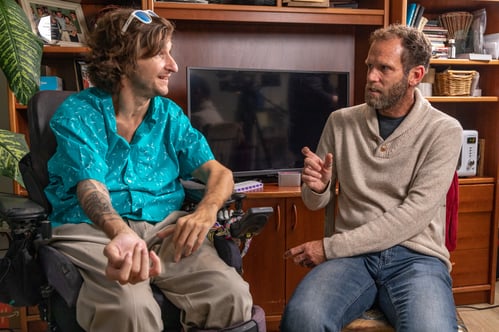Pioneering Cell Transplants for the Treatment of Spinal Cord Injury
Join Our Movement
What started as an idea has become a national movement. With your support, we can influence policy and inspire lasting change.
Become an Advocate
OPC1 is currently in long-term follow-up from the Phase 1/2a multicenter clinical trial for cervical SCI. Some individual patient perspectives are available here: Chris’ s story and Jake’s story.
On February 13, 2024, Lineage announced the clearance by the U.S. Food and Drug Administration (FDA) of its Investigational New Drug amendment (INDa) to enable clinical testing for the OPC1 program to continue. Pursuant to the IND, Lineage has initiated activities to open its first clinical site in the DOSED (Delivery of Oligodendrocyte Progenitor Cells for Spinal Cord Injury: Evaluation of a Novel Device) clinical study, to evaluate the safety and utility of a novel spinal cord delivery device in subacute, and for the first time, chronic SCI patients.
“With so few opportunities for SCI patients to participate in clinical trials, it is a privilege to engage with the SCI community as part of our efforts to improve outcomes for individuals with a debilitating condition for which there currently are no FDA-approved treatments. The clearance of our INDa and the initiation of OPC1 clinical testing under our sponsorship represents a significant milestone for this program, and highlights our commitment to developing modern cell therapy product candidates. We are excited by the opportunity to build upon the promising results achieved with OPC1 in previous trials, and to continue to seek improvements in how our therapy is prepared and administered. The DOSED clinical study is intended to evaluate the safety and performance of a new delivery device, which is compatible with our forthcoming off-the-shelf “immediate-use” formulation, and which does not require cessation of patient ventilation during administration. We believe these improvements can lead to a safer surgical procedure for surgeons and patients. This study also will mark the first time that OPC1 is administered to chronic SCI patients, and we will be collecting efficacy assessments in addition to the primary outcome measures of safety,” stated Brian M. Culley, Lineage CEO.
All presentations and panels from the 2023 SCI Investor Symposium can be viewed here. Be sure to follow the Reeve Foundation and Lineage for updates on the 2nd annual SCI Symposium.
You can learn more about Lineage here, or by following the Company on Twitter @LineageCell. Our commitment is to continue pioneering in this field, with the hope of bringing life-changing treatments to those affected by SCI.
